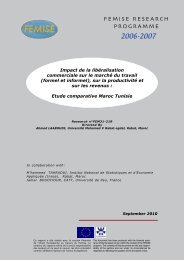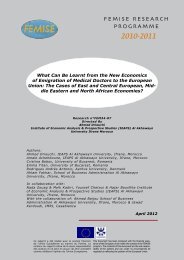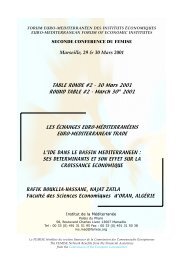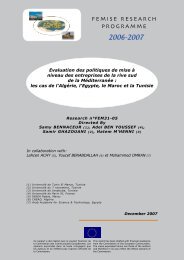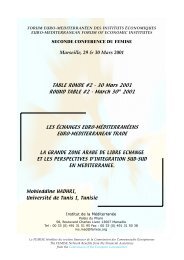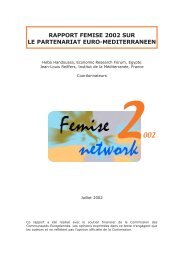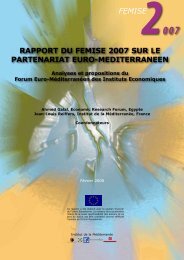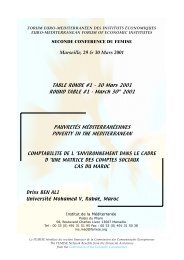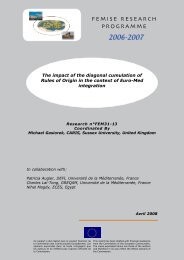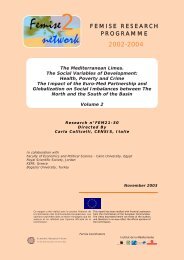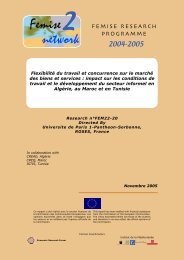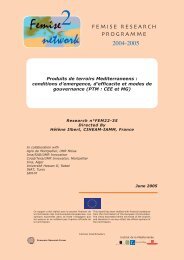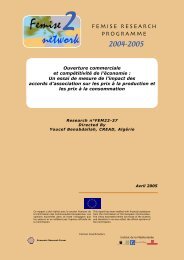PDF, GB, 139 p., 796 Ko - Femise
PDF, GB, 139 p., 796 Ko - Femise
PDF, GB, 139 p., 796 Ko - Femise
Create successful ePaper yourself
Turn your PDF publications into a flip-book with our unique Google optimized e-Paper software.
trade area (FTA). The Agadir Agreement was signed in 2004 and was initially foreseen<br />
to take effect in 2005. However, it encountered delays in entering into force and<br />
eventually came into force only in 2007. At this stage it is too early to evaluate its<br />
effectiveness. Nevertheless, it was possible to evaluate empirically at least the<br />
effectiveness of those bilateral trade agreements concluded among the MPCs in the late<br />
1990s that later laid the foundations for the Agadir Agreement.<br />
Similar to the case of the NMS we study here the trade effects of the new EU<br />
Association Agreements for bilateral imports and exports of the MPCs using the<br />
generalized gravity equation that can be derived from neoclassical and new trade theory<br />
models that assume incomplete specialization in production. In our study we control for<br />
the effects of other both plurilateral and bilateral free trade agreements concluded by the<br />
MPCs among themselves as well as with countries located outside the region. We<br />
analyze the impact of the association agreements for both exports and imports<br />
separately.<br />
As in the case with CEE countries, we derive the generalized estimating equation based<br />
on various theoretical models. In addition to the standard variables, related to distance,<br />
GDP, capital/labour ratio or regional trade agreements we also used dummies indicating<br />
whether countries share a common border, a common language (Arabic or Turkish)<br />
and/or a same colonizer.<br />
In all the cases our estimations demonstrate that the EU-Association Agreements<br />
significantly contributed to the increase in bilateral imports of the MPCs from EU<br />
members. The evidence obtained for bilateral trade agreements concluded in the late<br />
1990s between the members of the Agadir group is, however, mixed. While the simple<br />
OLS estimates suggest that all bilateral agreements concluded between the Agadir<br />
group member states significantly increased their bilateral imports, this evidence is not<br />
robust when panel data estimation techniques are employed. In contrast to bilateral<br />
imports the new generation EU Association Agreements do not seem to contribute<br />
positively to the expansion of exports from the MPCs to the EU. This means that the EU<br />
countries will be the main beneficiaries of these agreements, at least in the short run, as<br />
the EU markets for industrial products have been open to the MPCs since the 1960s and<br />
the 1970s, while the markets for agricultural products still remain relatively closed.<br />
10



